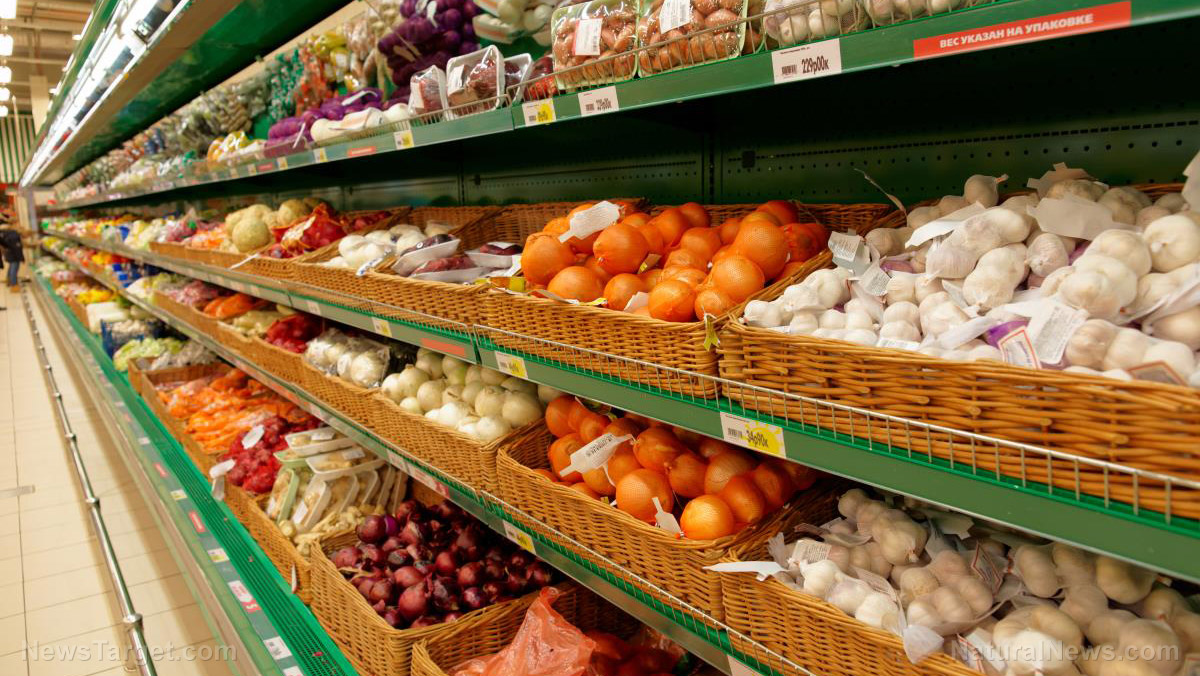5 Ways to prepare yourself for the next economic recession
04/23/2020 / By Divina Ramirez

With many businesses closed and several others on the brink of bankruptcy, the COVID-19 outbreak has opened up the possibility of an economic recession.
According to a recent article published on Bloomberg.com, the chance of a recession currently stands at 100 percent, the highest it has ever been since the Great Recession of 2010 and the 2001 Recession before that. Many Americans are becoming increasingly pessimistic about this projection, and for good reason. The past couple of weeks have seen a spike in filings for unemployment benefits, a key indicator of a recession that economists look out for.
Intimidating as it may seem, seasoned and hard-core preppers know how to make it through any emergency, physical or otherwise. If you are about to get laid off or are trying to make ends meet with the meager unemployment benefits you receive, here are some tips on how you can survive the upcoming economic recession. (h/t to SHTFPlan.com)
Grow your own food
A surefire way to sustain yourself in the long-run is to grow your own food. This includes plant-based foods like fruits, vegetables, whole grains, nuts and legumes. Be sure to read up on which plants grow best in the climate and environment that you have.
If you’re a seasoned homesteader, you may also raise livestock for essential commodities like meat, eggs and milk. Over time, as the recession grows, food supplies may run low, or you might run out of cash. Either way, it’s best to be fully prepared, especially since it doesn’t look like the outbreak, and the lockdown, will end anytime soon.
Stockpile basic food groups
Be sure to stock up as well on foods and ingredients that you cannot necessarily grow at home, such as fish, unrefined flour and fermented foods like yogurt. This ensures that you do not miss important nutrients even as you go through the recession.
To stock up on fish, buy a large amount that can last you several days. Portion the fish into airtight freezer-safe containers and add labels that contain the date of purchase. When sealed and frozen properly, fatty fishes like tuna or salmon can last for up to three months, while leaner fishes like cod will last for up to six months.
In addition, you should never go without kitchen staples like flour. Be sure to go for the unrefined variety since white flour tends to have fewer nutrients.
Build a root cellar
A root cellar is an excellent way to store food without the use of electricity or food preservation methods. If you grow your own food, you can greatly benefit from a root cellar, especially if you produce more than what you can pickle or store in the refrigerator.
A root cellar is also fairly easy to build. If you don’t have the luxury of an expansive lawn or backyard, you can find several DIY instructions online on how to build mini root cellars using improvised materials. (Related: Upcycling for preppers: How to turn a broken freezer into a mini root cellar.)
Can fresh produce
A popular food preservation method, canning typically involves a brine solution and a quick water bath to extend the shelf life of certain foods. Canning is also an excellent way to preserve fresh foods without stripping them of their nutrients. Most fruits and vegetables can be canned, but some of the most commonly canned produce include cucumbers, carrots, green beans, tomatoes, asparagus, beets, celery, turnips and cabbage.
Learn how to safely collect and store water
You may have water now, but there’s no telling how the recession might affect water and electricity supply. For this reason, it’s best to learn how to safely collect and store water for survival and possible off-grid living. Here are some important tips to remember when it comes to water storage:
- Determine how much water you need to store, especially if you’re living with pets or several people.
- Large water containers are ideal for long-term storage, but make sure you have different types of containers on hand, such as water bottles, jugs and barrels to prepare for possible disaster and emergency scenarios.
- Avoid plastic containers that may leech bisphenol A (BPA), a known hormone disruptor, into the water.
- Never store plastic containers near gasoline, pesticides or similar substances.
- Rotate water every six months to avoid possible contamination from the substances that the containers are made of. If you find water storage rotation a challenge, invest in a high-quality water filter or water filtration system instead.
With the economy in a mess, it’s easy to get caught up in panic and despair. However, even if you’re about to become unemployed, or are trying to survive off what savings you have, you might just make it through the next six months or so under an economic recession when you take the necessary precautions.
Sources include:
Tagged Under: Collapse, disaster, economic recession, emergency food, financial collapse, food collapse, food independence, food supply, green living, home gardening, homesteading, outbreak, pandemic, panic, preparedness, prepping, SHTF, starvation, survival, survival food, unemployment
RECENT NEWS & ARTICLES
Pandemic.News is a fact-based public education website published by Pandemic News Features, LLC.
All content copyright © 2018 by Pandemic News Features, LLC.
Contact Us with Tips or Corrections
All trademarks, registered trademarks and servicemarks mentioned on this site are the property of their respective owners.





















